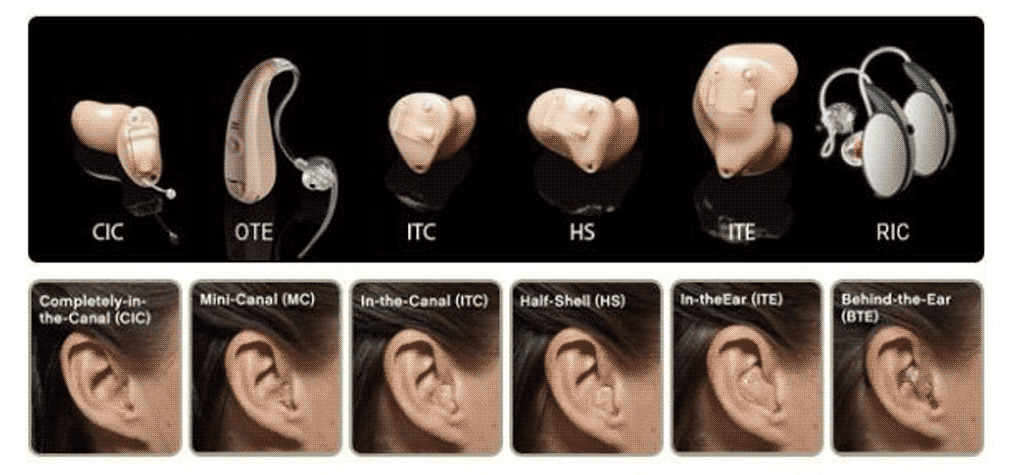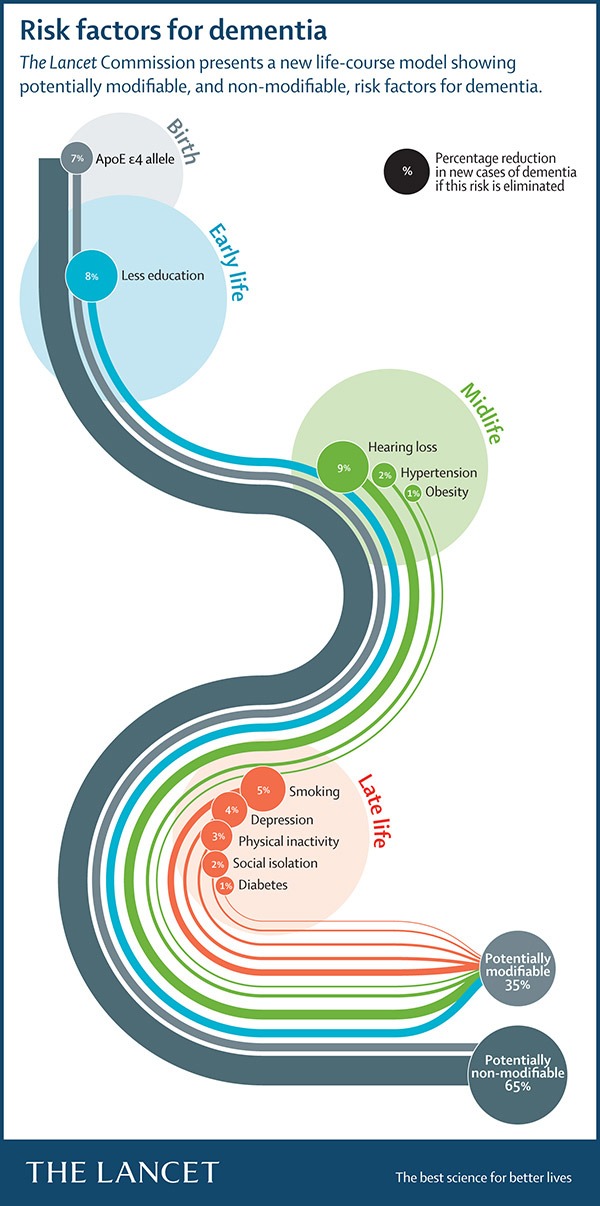Study: Hearing aids may help older adults delay dementia, depression, anxiety, and falls
 ___
___
Hearing Aids Linked to Lower Risk of Dementia, Depression and Falls, Study Finds (Michigan Health Lab):
“Older adults who get a hearing aid for a newly diagnosed hearing loss have a lower risk of being diagnosed with dementia, depression or anxiety in the following three years, and a lower risk of suffering fall-related injuries, than those who leave their hearing loss uncorrected, a new study finds.
Elham Mahmoudi, M.B.A, Ph.D., the U‑M Department of Family Medicine health economist who led the study, says it confirms what other research has shown among patients studied at a single point in time – but the new findings show differences emerging as time goes on … “Though hearing aids can’t be said to prevent these conditions, a delay in the onset of dementia, depression and anxiety, and the risk of serious falls, could be significant both for the patient and for the costs to the Medicare system” …
In all, the relative risk of being diagnosed with dementia, including Alzheimer’s disease, within three years of a hearing loss diagnosis was 18% lower for hearing aid users. The risk of being diagnosed with depression or anxiety by the end of three years was 11% lower for hearing aid users, and the risk of being treated for fall-related injuries was 13% lower…
The study only included individuals who billed their insurance company for part of the cost of their hearing aid, Mahmoudi notes. The coming of FDA-approved over-the-counter hearing aids in 2020 for people with mild to moderate hearing loss could make the devices much more accessible for many people.”
The Study:
Can Hearing Aids Delay Time to Diagnosis of Dementia, Depression, or Falls in Older Adults? (Journal of the American Geriatrics Society)
- OBJECTIVE: To examine the association between hearing aids (HAs) and time to diagnosis of Alzheimer disease (AD) or dementia, anxiety or depression, and injurious falls among adults, aged 66 years and older, within 3 years of hearing loss (HL) diagnosis.
- PARTICIPANTS: The participants included 114 862 adults, aged 66 years and older, diagnosed with HL.
- MEASUREMENT: Diagnosis of (1) AD or dementia; (2) depression or anxiety; and (3) injurious falls.
- INTERVENTION: Use of HAs.
- CONCLUSIONS: Use of HAs is associated with delayed diagnosis of AD, dementia, depression, anxiety, and injurious falls among older adults with HL. Although we have shown an association between use of HAs and reduced risk of physical and mental decline, randomized trials are needed to determine whether, and to what extent, the relationship is causal.
The Study in Context:
- Hearing aids, by reducing cognitive load, can improve brain function in persons with hearing loss
- 46.7 million Americans have Alzheimer’s Disease brain pathology today, so it’s urgent to prevent or at least delay progression to clinical disease
- 35% of worldwide dementia cases could be prevented by modifying these 9 modifiable risk factors




I truly appreciate this article. Much thanks again. Much obliged.